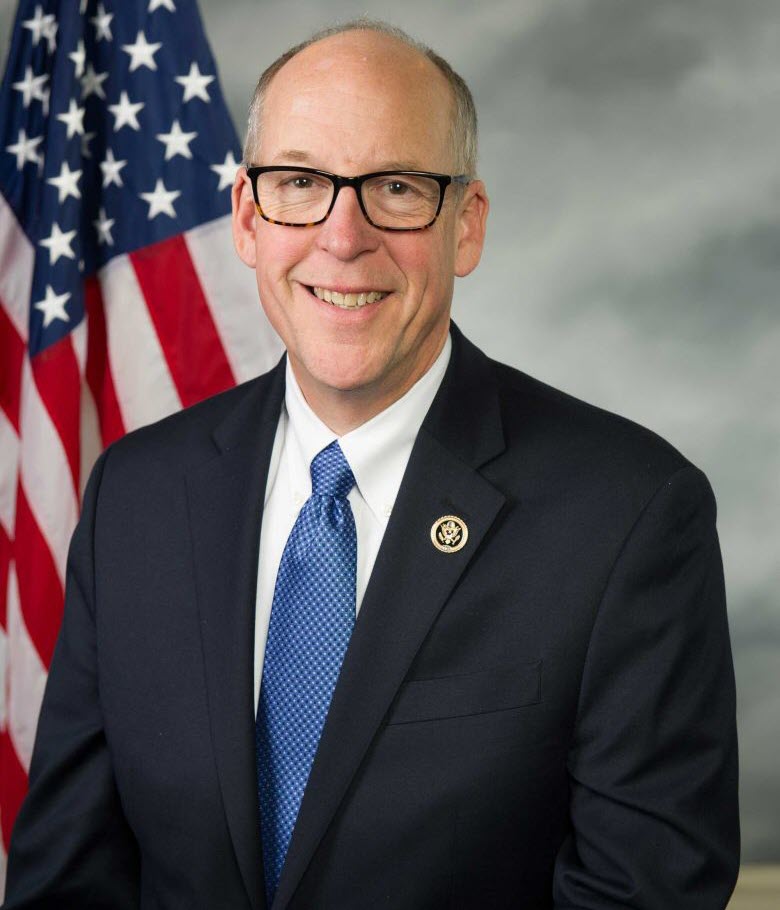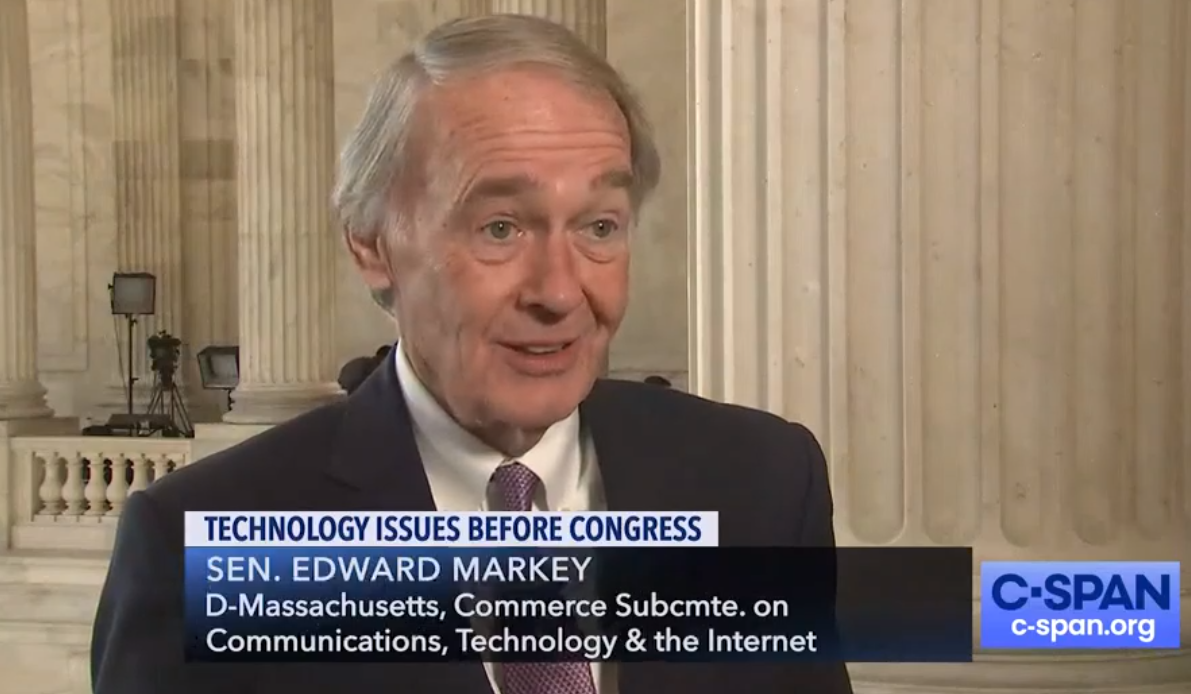Walden: Time For Serious Debate About Breaking up Edge

The smarter way to stay on top of broadcasting and cable industry. Sign up below
You are now subscribed
Your newsletter sign-up was successful
Rep. Greg Walden (R-Ore.), ranking member of the House Energy & Commerce Committee, said that the goal of new internet regulation, which he said he generally supports, should be to prevent bad behavior by ISPS, not to re-enshrine the Title II telecom definition suited to monopoly telephone companies, his Democratic counterparts on the House Energy & Commerce Committee are trying to do.
He also said it is time to have a serious debate about breaking up or regulating Edge Providers--removing liability carve-outs for third party content, for example--who he said engage in de facto speech regulation.
That came in an interview for C-SPAN's Communicators series, which airs this weekend.
While Walden signaled Title II was a nonstarter, he said they should and ought to be able to agree on no blocking and throttling and "even" no paid prioritization, that last which is a grayer area who see it as a potential service differentiator--Dems argue there is not enough competition if a consumer didn't want paid prioritization as part of their service and that paid prioritization is a way to non-neutralize the net.
Walden didn't presume to speak for all the Republicans--he is ranking member of the committee--but he did not hold out hope much hope that Dems could get any on his side to vote for a Title II-based bill, which is currently before them in the Save the Internet Act.
Sen. Ed Markey (D-Mass.) , who was also interviewed for the series, signaled that Title II definitely needed to be part of new legislation.
"I think you would see an overwhelming 'no' vote on our side if they want to put brand new, and virtually unlimited, powers in the hands of the FCC," said Walden. "The current bill would exclude much of Title II, as the 2015 Open Internet order rules it is trying to restore did, but that order also included a "general conduct standard," which would allow the FCC to regulate virtually anything it concluded impeded a neutral net.
The smarter way to stay on top of broadcasting and cable industry. Sign up below
Walden said it was kind of ironic that in an age of Donald Trump, the House Communications Subcommittee chair Mike Doyle would want to give the Trump FCC such "unbridled" power." "I think it would go too far over time and have a chilling effect," he said.
Walden said he thought the Federal Trade Commission was capable of regulating the internet using its authority over holding ISPs to their user agreements. ISPs have generally pledged not to block, throttling or anticompetitively prioritize in the absence of rules.
Asked to react to WWW founder Tim Berners Lee's comment that "we don't have the Web we wanted," Walden said it depended on how you described it. He said that it had brought the world innovations in education and business and social interaction and connectivity, but that then there were the downsides of "criminal and elicit behavior" and "degradation of civility" because it allows people on social media "thinking they are somewhat anonymous so they can say really mean and harsh things and bully others."
Then there was the issue of privacy. He pointed to edge provider data tracking and use. He said it was time for a privacy law that "gives parents and users of the internet to have transparency and accountability."
He wasn't ready to go down the path of the EU's GDPR privacy framework, citing the cost of compliance. He pointed out that some companies are choosing not provide content in Europe, including some U.S. newspapers, because of that cost, which he estimated at $3 million.
Walden also said there had been some decline in start-up investment in Europe post-GDPR. "I think they went too far," he said.
Walden also said California's privacy law--which goes into effect next year--was over the top, but maybe there was something the feds could take from state laws to find the right balance.
Related: Stakeholders Vet California Net Re-Regulation
Walden was not ready to say a firm no on potential regulation of speech online. "That's an interesting topic," he said. He pointed out he has a journalism degree and a self-proclaimed "First Amendment/free speech advocate. But he said the country was already seeing de facto regulation of speech by "edge providers, not the ISPs."
He brought up the issue of alleged 'shadow banning" on Twitter and questions about the algorithm and decisionmaking by social media platforms. He expressed his concerns about anti-conservative bias, which he said clearly exists in "enormous measure" in Silicon Valley, and the question is whether it gets subtly integrated into the algorithms and decisionmaking as to what gets put where. "I think those are important questions for Congress to look at."

As to whether The Edge be broken up, he pointed out that Sen. Ted Cruz (R-Texas) has recently suggested he may agree with Elizabeth Warren (D-Mass.) about the need to break up the Biggest Tech. Walden said he didn't know if he was there yet, but he was ready to consider whether The Edge was the common carrier (to which Title II regs apply) and that the issue of regulating or breaking up the edge was ripe for debate and "deep consideration...Are we seeing monopolies before our eyes."
He also talked about the Sec. 230 waiver (in the Communications Decency Act) that exempts them from liability for third-party content posted on their site, something Democrats and Republicans are both re-thinking.
Markey (D-Mass.) one of the staunchest fans of the return of Title II-based regs on the 'net, told C-SPAN that restoring the rules was just another way of protecting nondiscrimination, so no company can tell a Web user where to go, as it were.
While Republicans often point out that ISPs did not start blocking and throttling after the rules were repealed, Markey said that is because with the challenge to the reg rollback still in a federal appeals court, "right now they are not doing anything that is anti-consumer or anticompetitive."
Markey said the goal of the Save the Internet Act was indeed to restore Title II and treat the internet as a telecommunications service and he said he thought there was a good chance to build momentum would build for doing so. He took a little off that, saying he was saying, once the bill passes the House, as it is expected to do, that it was "impossible" to pass the Republican-controlled Senate.
The episode, which airs on C-SPAN March 23 at 6:30 p.m. ET and March 25 on C-SPAN2 at 8 a.m. and 8 pm ET.
Contributing editor John Eggerton has been an editor and/or writer on media regulation, legislation and policy for over four decades, including covering the FCC, FTC, Congress, the major media trade associations, and the federal courts. In addition to Multichannel News and Broadcasting + Cable, his work has appeared in Radio World, TV Technology, TV Fax, This Week in Consumer Electronics, Variety and the Encyclopedia Britannica.

